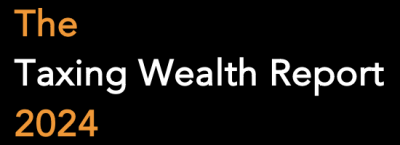I have been sent an email that says:
I have been reading the summaries of your tax proposals, but not the details.
I am not very sure, however, what your modus operandi are. You seem to be going along with the principle that tax is required to fund public expenditure, but we who read your blog all know that isn't the way it works. Do I take it that you are seeking to speak the language of the powers that be in order to get your message across in order to improve things without going the whole hog of campaigning for an understanding of MMT in political circles?
The identity of the author, who comments here occasionally, does not matter. The issue does.
My correspondent is right to note that I have not as yet published all the methodology notes that go with this report. There will be some more to come, including a lengthy note on the economics of this issue, but it is not complete as yet.
One good reason for that is that I am aware that many in the MMT community show very little understanding of the role of tax in the economy, and I am having to write an explanation that both reflects the fact that tax does not fund government spending and that tax is absolutely essential, despite that, to the government's fiscal cycle if inflation is to be avoided.
The reality is that the government fiscal cycle, when reduced to a formula, is that it looks like this:
G = T + ∆B + ∆M
where
G = government spending in period
T = Tax revenue in a period
∆B = The change in government borrowing in a period, and
∆M = the change in the value of government-created money in a period.
For the record, a version of this formula is included in Bill Mitchell's textbook on macroeconomics. There is nothing heretical about it.
You will note that despite the fact that MMT purists (Bill, most especially) say that MMT does not require taxation, this is not reflected in this MMT textbook. There is good reason for that.
That good reason is that MMT does not say that government spending does not require taxation. Stephanie Kelton makes this clear in her book, The Deficit Myth.
What MMT actually says is that government spending does not require that taxation be raised before expenditure can take place. The issues are, of course, quite different. The two points are, however, frequently confused, and it would help no end if those who think they are promoting MMT would get their facts right and stop making the false claim that MMT does not require taxation, because it does.
What I am suggesting is entirely consistent with this proper understanding of the government's fiscal cycle, but what I am also recognising is that there is significant government resistance around the world to increased government borrowing, meaning that the variable ∆B is tending towards zero.
I am also recognising that in the current inflationary environment central bankers are, rightly or wrongly, of the opinion that new government money creation should be constrained, meaning that variable ∆M is also tending towards zero in the real world in which I am interested in operating.
As a result, whilst it is completely untrue that government expenditure is funded by taxation, it is also possible that those two variables might, in this circumstance, have a very close relationship. We might in fact be moving towards the possibility that any increase in government spending might need to be matched by tax revenue, so that in this circumstance G = T, or government spending and tax are equal for additional expenditure.
I can live with that fact without accepting any claim that taxation must proceed expenditure, which is not true.
There will be more to come on this, but I hope this clarifies the point.





